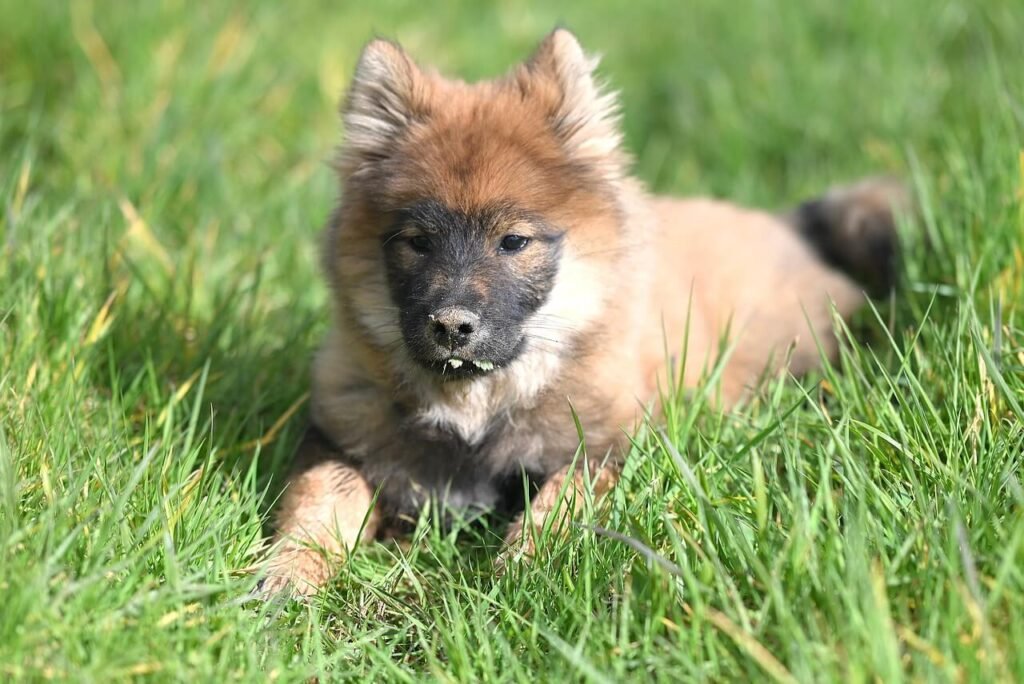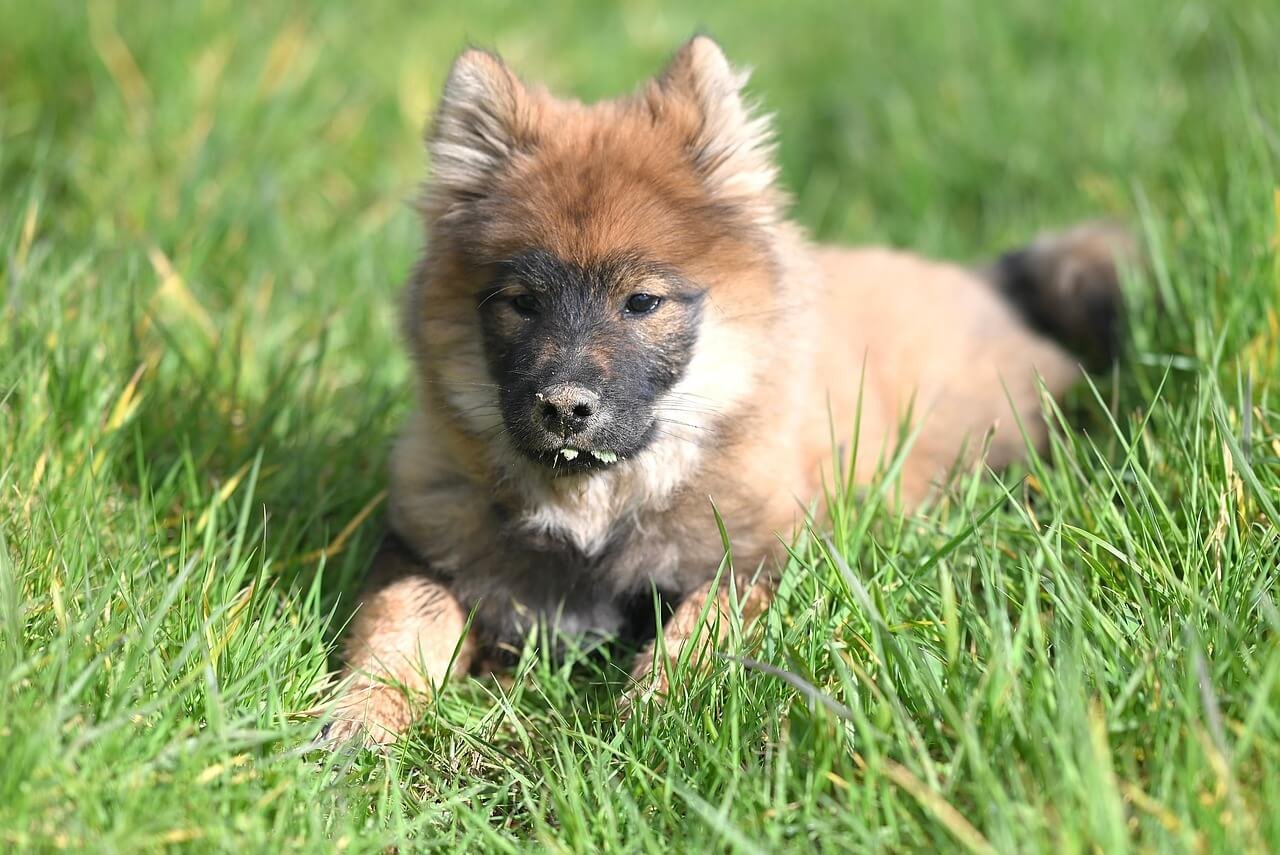Why Does My Dog Eat Everything? Unraveling the Mystery
Dogs are curious creatures, and their insatiable appetite often leaves us scratching our heads. Whether it’s a piece of paper, a sock, or even dirt, many dog owners have found themselves asking, “Why does my dog eat everything?” This behavior can range from amusing to concerning, depending on what your furry friend decides to munch on. In this blog post, we’ll explore the reasons behind this quirky habit and provide practical tips to manage it effectively. By understanding your dog’s instincts and needs, you can ensure their safety while nurturing their natural curiosity.
Common Reasons Why Dogs Eat Everything
Dogs are notorious for their indiscriminate eating habits, but there are several underlying reasons for this behavior. Let’s break it down:
Natural Instincts :
Dogs are descendants of wolves, who are scavengers by nature. Eating anything they find could be a survival instinct passed down through generations.Curiosity :
Puppies, in particular, explore the world through their mouths. Chewing and tasting objects help them learn about their environment.Boredom :
A lack of mental or physical stimulation can lead to destructive behaviors, including eating non-food items.Nutritional Deficiencies :
Sometimes, dogs may crave certain textures or substances due to missing nutrients in their diet.Attention-Seeking Behavior :
If your dog has learned that eating random objects gets a reaction from you, they might do it more often.
Understanding these triggers can help you address the root cause of your dog’s behavior and take steps to redirect their energy in healthier ways.
Health Risks of Eating Non-Food Items
While it might seem harmless at first, allowing your dog to eat everything can pose serious health risks. Here’s what you need to know:
Choking Hazards :
Small objects like toys, rocks, or bones can get lodged in your dog’s throat, causing choking or blockages.Toxic Substances :
Many household items, such as cleaning products or plants, can be toxic if ingested.Gastrointestinal Issues :
Consuming non-digestible materials can lead to vomiting, diarrhea, or intestinal damage.Dental Problems :
Hard objects can crack teeth or injure gums, leading to painful dental conditions.Behavioral Disorders :
Persistent eating of non-food items could indicate a condition called pica, which requires professional intervention.
By being aware of these risks, you can take preventive measures to protect your dog’s well-being and avoid costly vet visits.
Check this guide 👉Can Dogs Eat Pizza? Best 7 Health Tips!
Check this guide 👉Why Wont My Dog Eat Kibble But Devours Everything Else? Best 7 Tips
Check this guide 👉How Long After Eating Does a Dog Poop? Best 7 Expert Tips!

Preventive Measures | Benefits |
|---|---|
Provide plenty of chew toys | Redirects chewing behavior to safe alternatives |
Supervise outdoor playtime | Prevents ingestion of harmful outdoor objects |
Offer a balanced diet | Reduces cravings for non-food items |
Schedule regular exercise | Decreases boredom-related behaviors |
Train basic commands (e.g., “Leave it”) | Helps control impulsive eating habits |
How to Train Your Dog to Stop Eating Everything
Training plays a crucial role in managing your dog’s eating habits. With patience and consistency, you can teach them better behavior:
Use Positive Reinforcement :
Reward your dog with treats or praise when they ignore inappropriate items.Teach the “Leave It” Command :
This simple command can prevent your dog from picking up unwanted objects.Engage in Interactive Play :
Games like fetch or tug-of-war channel their energy into productive activities.Create a Routine :
Consistent feeding and walking schedules reduce anxiety-driven behaviors.Limit Access to Problematic Items :
Keep small or dangerous objects out of reach to minimize temptation.
With these strategies, you can gradually steer your dog away from harmful habits and foster a healthier relationship with food and objects.
When to Consult a Veterinarian
If your dog’s habit of eating everything persists despite your efforts, it might be time to seek professional advice. Consider the following signs:
Frequent Vomiting or Diarrhea :
These symptoms could indicate an underlying medical issue.Weight Loss or Lethargy :
Changes in appetite or energy levels may signal nutritional deficiencies.Obsessive Behavior :
Constantly eating non-food items could point to anxiety or compulsive disorders.Ingestion of Toxic Substances :
Immediate veterinary care is essential if your dog consumes something poisonous.Unexplained Aggression :
Sudden changes in behavior might require behavioral therapy or medication.
A veterinarian can conduct tests and provide guidance tailored to your dog’s specific needs, ensuring their long-term health and happiness.
Understanding the Role of Breed in Eating Habits
Different dog breeds exhibit varying tendencies when it comes to eating everything in sight. While some breeds are more prone to scavenging behaviors, others may be less inclined. Here’s how breed-specific traits can influence this behavior:
Labrador Retrievers :
Known for their love of food, Labs often eat anything they can find due to their strong appetite drive.Beagles :
With their exceptional sense of smell, Beagles are naturally curious and likely to explore objects by tasting them.Terriers :
Terriers are energetic and may chew or eat items out of boredom or frustration.Greyhounds :
Although picky eaters in general, Greyhounds may still nibble on unusual items if under-stimulated.Herding Breeds (e.g., Border Collies) :
These intelligent dogs may turn to chewing or eating random objects as an outlet for excess energy.
Recognizing your dog’s breed tendencies can help you tailor your approach to managing their eating habits effectively.
Environmental Factors That Encourage This Behavior
A dog’s surroundings can significantly impact their tendency to eat non-food items. Environmental factors often play a larger role than we realize. Consider the following influences:
Cluttered Spaces :
A home filled with small objects within reach can tempt your dog to chew or swallow them.Lack of Mental Stimulation :
Dogs left alone without toys or activities may resort to eating random items out of boredom.Outdoor Exploration :
Walks in areas with trash or debris increase the chances of scavenging behavior.Stressful Situations :
Changes in the household, such as moving or new family members, can trigger anxiety-related eating.Unsupervised Playtime :
Leaving your dog unattended in areas where dangerous items are accessible can lead to trouble.
By addressing these environmental triggers, you can minimize opportunities for your dog to engage in unwanted eating behaviors.
Dietary Adjustments to Curb Unusual Eating Habits
Sometimes, tweaking your dog’s diet can make a significant difference in curbing their habit of eating everything. Nutritional adjustments can address underlying cravings or deficiencies. Here’s what you can try:
High-Quality Dog Food :
Switching to a premium brand ensures your dog receives all essential nutrients, reducing the urge to seek them elsewhere.Adding Fiber :
Increasing fiber intake through vegetables like pumpkin can promote fullness and reduce hunger-driven scavenging.Probiotic Supplements :
Probiotics support gut health, which may alleviate compulsive eating behaviors linked to digestive issues.Hydration :
Ensuring your dog drinks enough water prevents dehydration, which can sometimes be mistaken for hunger.Limited Treats :
Overfeeding treats can disrupt their appetite, making them more likely to snack on inappropriate items.
Making thoughtful dietary changes not only supports your dog’s overall health but also helps redirect their focus away from harmful eating habits.
Frequently Asked Questions About Dogs Eating Everything
Is it normal for dogs to eat everything?
While some level of curiosity is normal, excessive consumption of non-food items can indicate underlying issues.
Can stress cause my dog to eat strange things?
Yes, stress or anxiety can manifest as unusual eating behaviors.
How can I stop my dog from eating grass?
Ensure they have a balanced diet and consult a vet if the behavior becomes obsessive.
What should I do if my dog eats something toxic?
Contact your veterinarian or an emergency animal clinic immediately.
Does spaying or neutering affect eating habits?
Hormonal changes post-surgery can sometimes influence appetite, but it varies by individual.
Empowering Your Dog to Make Better Choices
Understanding why your dog eats everything is the first step toward addressing this challenging behavior. From natural instincts to potential health issues, there are many factors at play. By implementing training techniques, providing enrichment, and seeking professional advice when needed, you can create a safer and happier environment for your furry companion. Remember, patience and consistency are key—your dog looks to you for guidance, and together, you can overcome this hurdle. So, the next time you catch your pup munching on something odd, take a deep breath and remind yourself: you’ve got this!
Pemphigus Erythematosus in Cats: Best 7 Expert Tips! – Learn to recognize symptoms, manage flare-ups, and improve your cat’s quality of life.
Pemphigus Erythematosus in Dogs: Best 7 Expert Tips! – Discover causes, symptoms, and treatment options to manage this autoimmune skin condition effectively.
Cat Tympanic Membrane: Best 7 Expert Tips! – Learn how to protect your cat’s eardrum, spot issues early, and ensure lifelong auditory health.
Dog Tympanic Membrane: Best 7 Expert Tips! – Learn how to protect your dog’s eardrum, spot issues early, and ensure lifelong ear health with expert advice.





